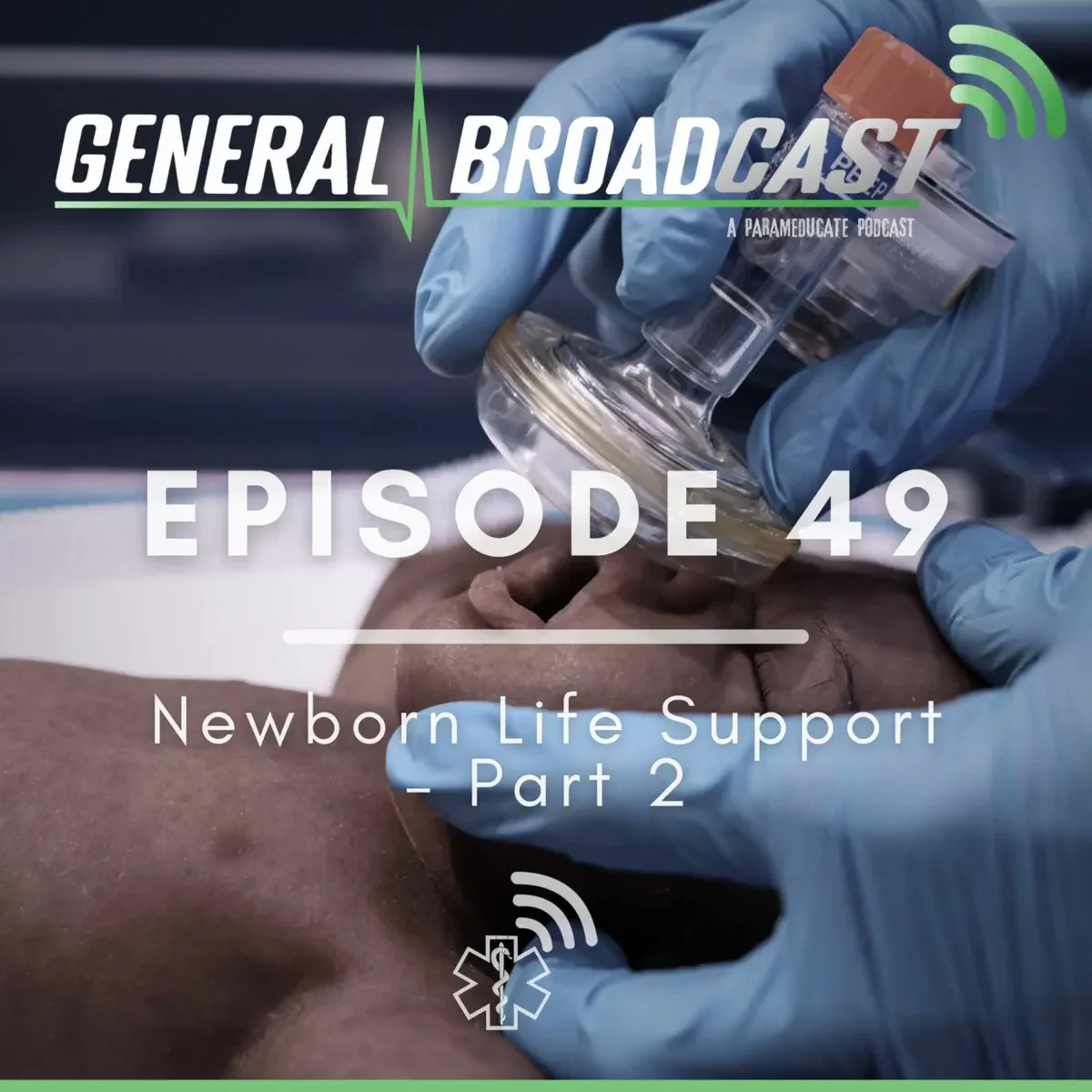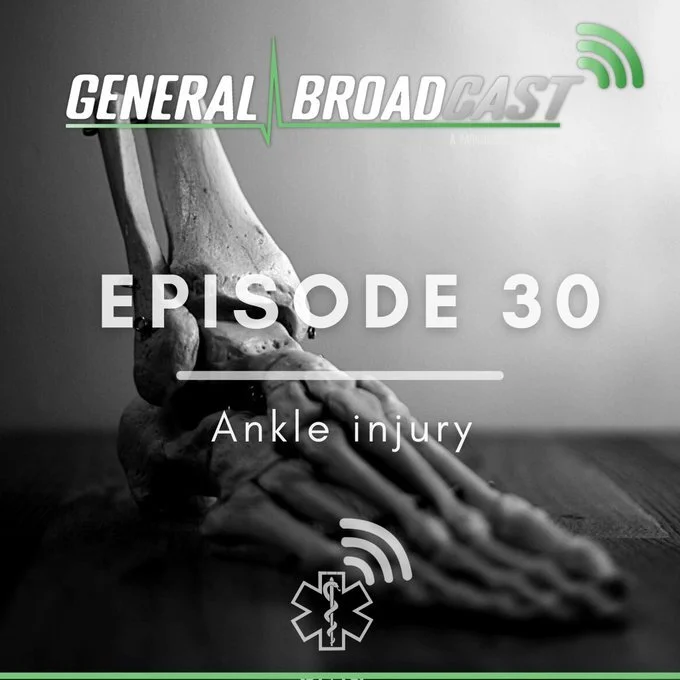Recently BroadCAST
In this Episode we reflect on a case of Beta Blocker overdose, we examine the pharmacology with toxicity, look at specific drugs like propanolol and how these differ, as well as the evidence behind the treatment and management of patients who present with beta blockade toxicity.
In this months episode, we explore one of the most challenging aspects of paramedic practice — discontinuing resuscitation and how to deliver that news with compassion and clarity. Breaking bad news following a cardiac arrest is a crucial skill, yet often done poorly. We discuss who should take the lead, how to manage dynamic prehospital environments, and how to tell families their loved one has died after a cardiac arrest.
From delivering effective warning shots to preparing families for what to expect, we share practical advice and real-world experience to help emergency care professionals navigate this sensitive situation. Whether you're a paramedic, emergency doctor, or part of a resuscitation team, this episode offers invaluable insights to improve your communication skills and patient care.
On the back of our last episode looking at fitness to practice and keeping ourselves safe, we thought it would be a good opportunity to reflect on the way we write medical notes and how its changed over our time as paramedics. It's also a vital part in the transition and onwards of care patients.
Newly Qualified Advice Podcasts
Newly Qualified Advice Podcasts
On the back of our last episode looking at fitness to practice and keeping ourselves safe, we thought it would be a good opportunity to reflect on the way we write medical notes and how its changed over our time as paramedics. It's also a vital part in the transition and onwards of care patients.
This month we were lucky enough to sit down with Andrea James, a lawyer who specialises in defending paramedics in HCPC fitness to practice hearings.
We spoke to Andrea about what is involved with fitness to practice hearings and how we can protect ourselves with quality documentation. She hands out her tips on what makes practice easy and difficult to defend.
This month we look at managing hypoglycaemia, the perfect episode to listen to if you're just starting your educational journey as a student paramedic! But don't think this is only for newbies, theres loads of information in there for experienced medical students and qualified emergency practitioners alike. Learn about the physiology of Diabetes mellitus, how drugs like glucagon work as well as when we might need to consider refering a patient to the DVLA because of their hypo's.
Trauma Podcasts
Trauma Podcasts
Burns represent a special form of severe trauma which can negatively affect nearly every organ system. Despite huge advances in the care of these patients, severe burns are still associated with high morbidity and mortality long term….. and due to long hospitalization, rehabilitation, and extensive scar treatment, severe burn injuries rank among the most expensive traumatic injuries with regard associated health care costs. They are also conditions where the early and effective emergency care we deliver can be incredibly impactful to outcomes, function and survivability.
This month we look at the treatment and assessment of burns for emergency clinicians and paramedics. We also cover the evidence behind certain areas of practice, like do you get ECG changes from electrical burns? and which symptoms are most likely to be features of airway burns
Prehospital Traumatic Cardiac Arrest (TCA) is a rare and particularly stressful presentation to paramedics and emergency clinicians.
We should be comfortable with the different algorithm rescusers should use in resuscitation and understand the reasonings for modifications in these low output states in trauma.
So, why dont we do chest compressions in a traumatic cardiac arrest? Should TCA's be given adrenaline and what does HOTT Stand for? We've got the answers to all this and more.
Ankle injuries present to ambulance staff across a wide spectrum, from the minor soft tissue injury that can be discharged on scene, to the fracture dislocation. We need to be confident in assessing and managing the full spectrum of these injuries,
This month we talk about manipulating fractures, prophylactic antibiotics, as well as how to decide which injuries need an x-ray and what advice to give those patients that don't.
This month we're taking a look at Epistaxis. It's a common presentation with a varied degree of severity.
You might not thing there's much to learn about managing a nose bleed, but that's where you'd be wrong. There's a number of things we need to consider when assessing these patients and several treatment options to consider.
This month’s episode is very much not a how-to PHEA podcast. This is designed to give a bit of awareness to what’s happening if you’re part of one and how you can support the wider team if you find yourself looking after a patient receiving an anaesthetic.
Silver trauma is the term that is most commonly used to describe trauma in older patients. It is often used to refer to major trauma in this patient group and rates of major trauma in the over 65s are rising.
This month we're looking at the physiological changes that occur with ageing and trying to understand how these impact our older patients who suffer trauma.
In this episode we discuss to assess the scenes of Road Traffic Collisions, how car safety features work and how thinking about the injury experience during a collision can support our practice and care for injured patients.
In this episode we discuss to assess the scenes of Road Traffic Collisions, how car safety features work and how thinking about the injury experience during a collision can support our practice and care for injured patients.


















This month we take a look at the emergency management of diabetic ketoacidosis (DKA). We discuss the pathophysiology, the care paramedics can provide, appropriate fluid resuscitation strategies and the treatments offered in emergency departments and on ICU/ITU.